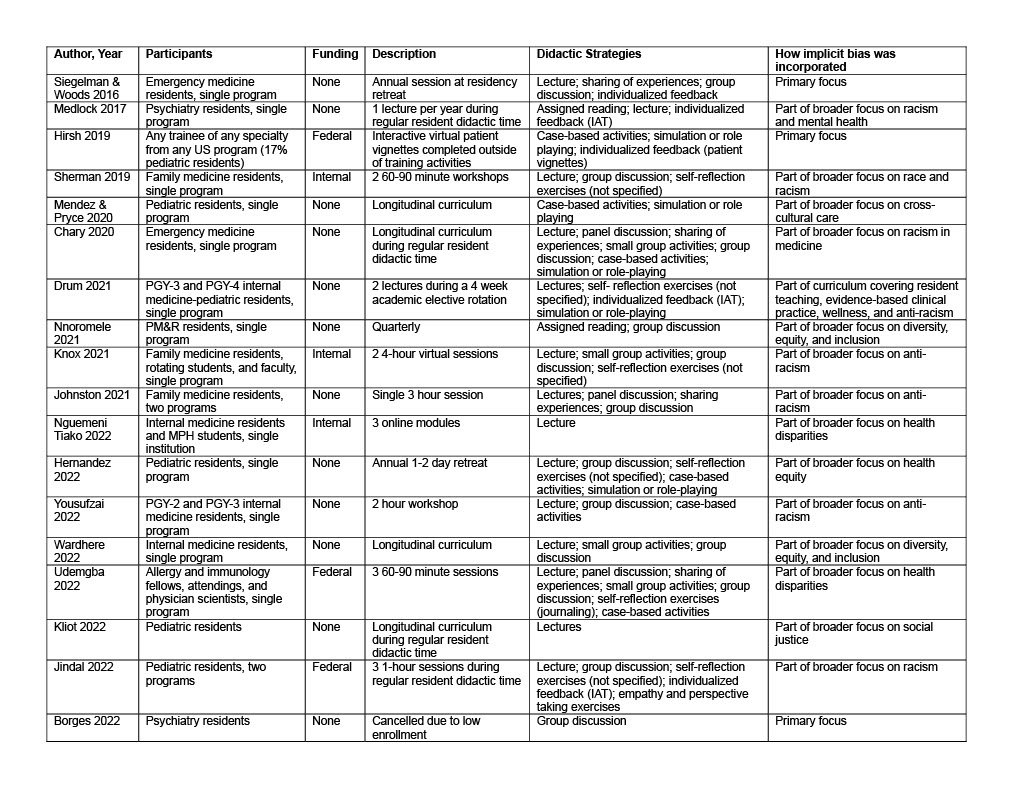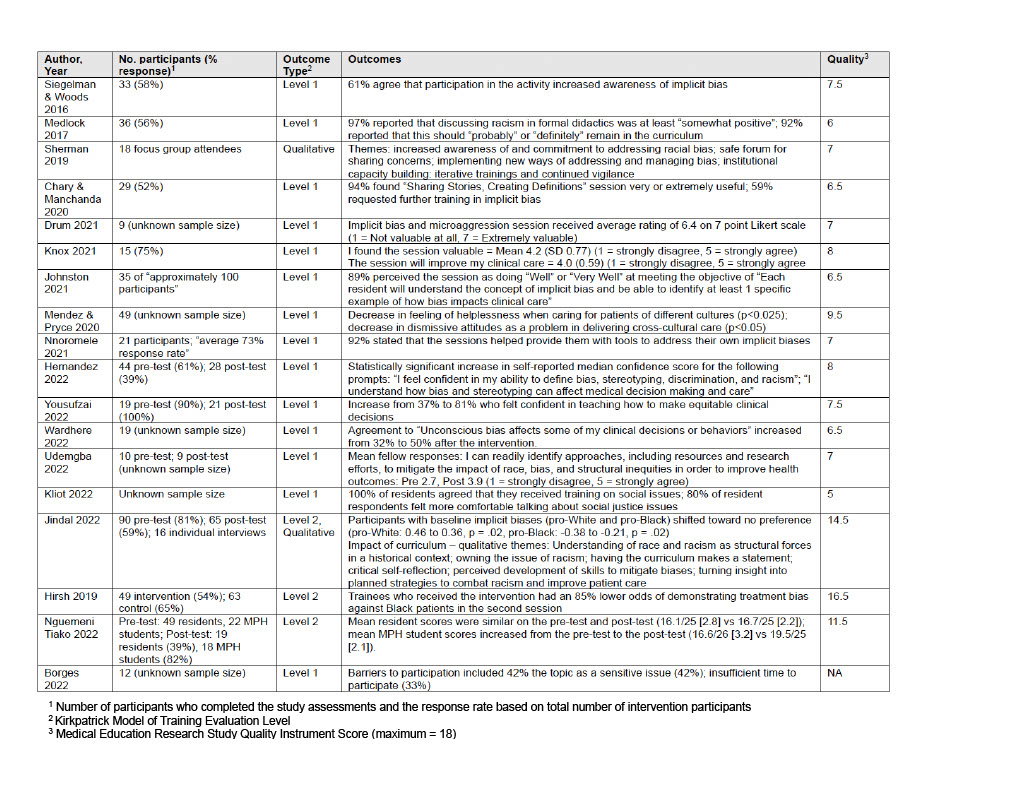Medical Education
Session: Medical Education 1
513 - Addressing Implicit Racial Bias in Residents and Fellows, a Systematic Review
Friday, May 3, 2024
5:15 PM - 7:15 PM ET
Poster Number: 513
Publication Number: 513.206
Publication Number: 513.206

Sarafina Musto, DO (she/her/hers)
Resident physician
University of Florida College of Medicine
Gainesville, Florida, United States
Presenting Author(s)
Background: Implicit racial bias contributes to racial health inequity through its influences on physician communication and medical decision making. There has been substantial recent attention on developing and implementing strategies, such as self-awareness, mindfulness, stereotype replacement, and perspective taking, to reduce implicit racial bias. Graduate medical education trainees (residents and fellows), who are actively involved in patient care while continuing to receive frequent didactics, may be a key target audience for effectively intervening upon implicit racial bias. It is not known how bias-reduction interventions in graduate medical education trainees impact inequities in patient care.
Objective: To systematically review the literature on interventions aiming to address implicit racial bias in graduate medical education trainees.
Design/Methods: We followed PRISMA guidelines to identify peer-reviewed, English language articles assessing interventions aiming to address implicit racial bias in graduate medical education trainees (PROSPERO registration CRD42023421842). We searched PubMed, Embase, and Academic Search Premier for publications in English on 3/3/2023. Each stage of screening and data extraction (title and abstract screening, full text review, data extraction) was conducted by two independent reviewers and conflicts were discussed and resolved. We used the Medical Education Research Study Quality Instrument to assess methodological quality. We conducted a framework synthesis guided by the Kirkpatrick Model of Learning Evaluation.
Results: Of 3662 bibliographic records, 18 were eligible for data extraction and synthesis (Figure 1). Three interventions focused primarily on implicit racial bias; the remainder included implicit racial bias within broader topics of (anti-)racism and health equity (Table 1). Most (n = 16) interventions were directed towards increasing general awareness of implicit bias through lectures, panel discussions, and sharing of experiences. Five incorporated strategies to increase self-awareness through individualized feedback. One intervention incorporated journaling for self-reflection, and one intervention had exercises aimed at developing perspective taking. Two high-quality studies, both of which involved pediatric residents, demonstrated short-term improvements in Kirkpatrick Level 2 outcomes (Table 2).
Conclusion(s): There remains a need for rigorous research to design, evaluate, and implement evidence-based interventions that reduce the impact of implicit racial biases on patient-centered health outcomes.
.jpg)


